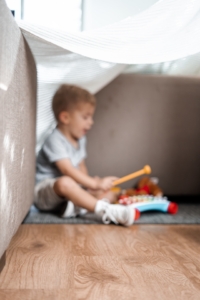As a parent, it may often seem like you are unable to provide treatment for ADHD to your children. But as with many of our foundational behaviors and lessons that we have learned, they were absorbed at home. Being intimately involved in the life of your child and providing him or her with treatment for ADHD will radically benefit your child as he or she grows and matures to manage symptoms.
This short article will look at three areas where you can improve your parenting. By doing so, you can provide treatment for ADHD as well as ways to boost your child’s confidence. Santa Monica Christian Counseling can support you in developing effective parenting strategies to address these challenges and foster your child’s growth.
Excellent boundaries at home as a treatment for ADHD
Unambiguous, always clear, and consistent expectations will provide a safe environment.
Children with ADHD often feel more secure when they know exactly what others expect of them. Kids with ADHD often do not perform well when they must figure out for themselves what expectations are by reading between the lines.
Consider benefitting from the guidance of a professional who can help narrow your focus to precise behaviors of your child, set limits that work for you and your home life, and give you a clear platform on which to consistently follow through with consequences.
It is documented that proactive discipline, and not reactive discipline, is far more effective. Methods that teach and reward appropriate behavior while responding to our children’s poor choices with alternatives like loss of privileges or time outs are better.
If your parents, in-laws, or other caregivers prefer to use different discipline methods when minding the children, then discuss it with them and explain the importance of using the same behavioral techniques consistently in different settings.
Help your child to learn from his or her mistakes.
The consequences of our actions can sometimes be our best teacher of what not to do. But this does not apply to many children with ADHD who often struggle to connect the dots between their behavior and its consequences. As a parent, you can draw a clear line between these. By doing so, you will help your son or daughter learn from mistakes.
Set solid foundations for your child’s confidence.

A special time every day that you set apart as quality time for you and your child will assist to strengthen your child against any assaults against self-worth. In the classroom, playground, or even at home where there is sibling rivalry, your child will often be receiving constant negative feedback. This erodes his or her self-esteem.
A daily time where you as a loving parent come alongside your child and notice his or her successes is gold. Look out for opportunities to catch your child doing the right thing and praise him or her for it. Is she paying attention well? Is he doing what he is supposed to be doing?
Be specific with your compliments, telling your child exactly where he or she did well. This will often improve your child’s self-esteem and teach him or her to notice and celebrate incremental improvements. This will help your child not be too hard on himself or herself.
Declare your unconditional love for your son or daughter. Do you support your child no matter what? Express this to him or her.
None of us are perfect parents, so there will be times when we are discouraged and do not believe we are good enough. These are the days that you must take a breath, make eye contact with your child, acknowledge his or her struggles, and declare your love for him or her. Through this practice, your child will come to know there will be rough times and smooth times, and you will be together with him or her through it all.
 Teach social skills to your child. If your child’s hyperactivity, impulsiveness, or aggressive behavior is a turn-off for his or her friends, then look for ways you can help your child make friends and learn to work together cooperatively with others.
Teach social skills to your child. If your child’s hyperactivity, impulsiveness, or aggressive behavior is a turn-off for his or her friends, then look for ways you can help your child make friends and learn to work together cooperatively with others.
Notice and call out the natural strengths of your child. Experts find that often those children with ADHD are strong in particular areas such as art, athletics, computers, or in their mechanical ability. Make sure your child has opportunities to build upon these strengths to establish his or her sense of healthy pride.
Build upon these strengths, so that your child will have a sense of confidence and success. During these times try to set it up to ensure your child’s ADHD does not undermine his or her progress. It is important to remember that you cannot hold these activities when your child experiences success and confidence-building opportunities as a carrot for good behavior or as a stick by withholding it as a punishment.
Next steps
If you are looking for additional help with providing treatment for ADHD in children, then please browse our online counselor directory or contact us at Santa Monica Christian Counseling to schedule an appointment. We would be honored to walk with you on this journey.
“Legos”, Courtesy of Getty Images, Unsplash.com, Unsplash+ License; “Boy Playing”, Courtesy of Kelli McClintock, Unsplash.com, CC0 License; “Building Stuff”, Courtesy of Nathan Dumlao, Unsplash.com, CC0 License


